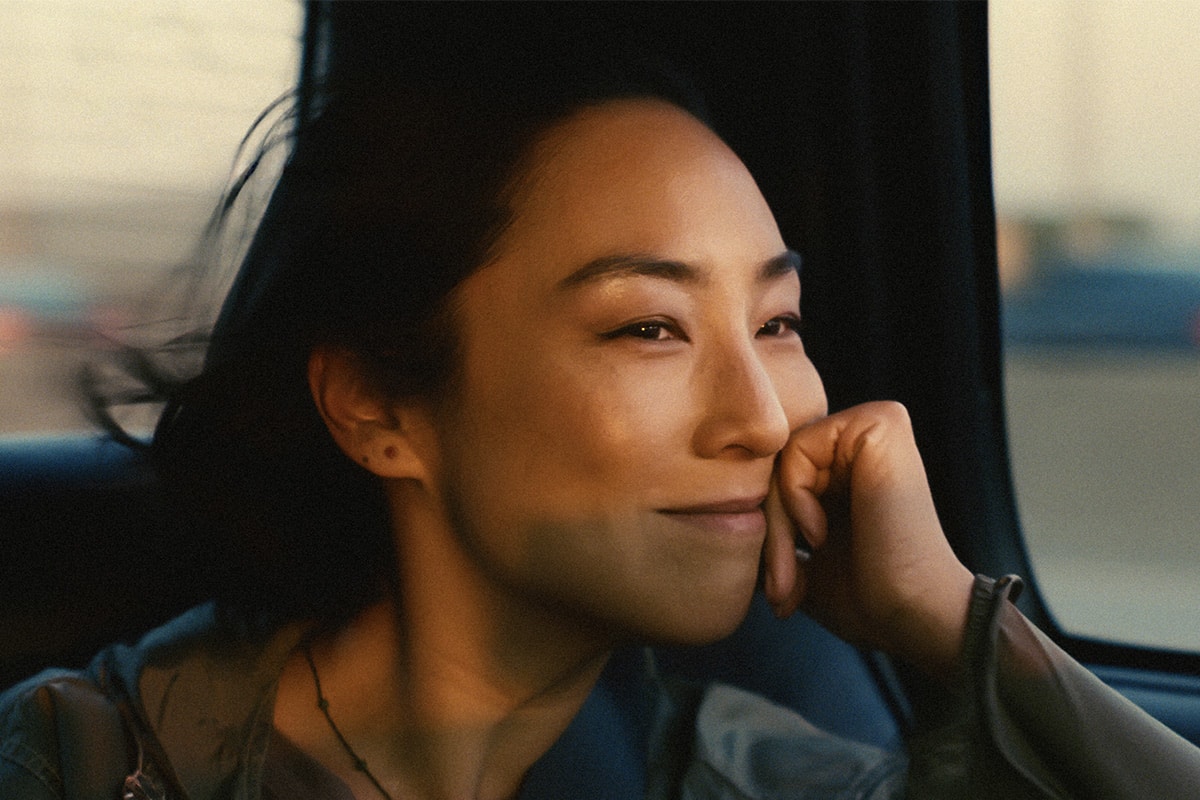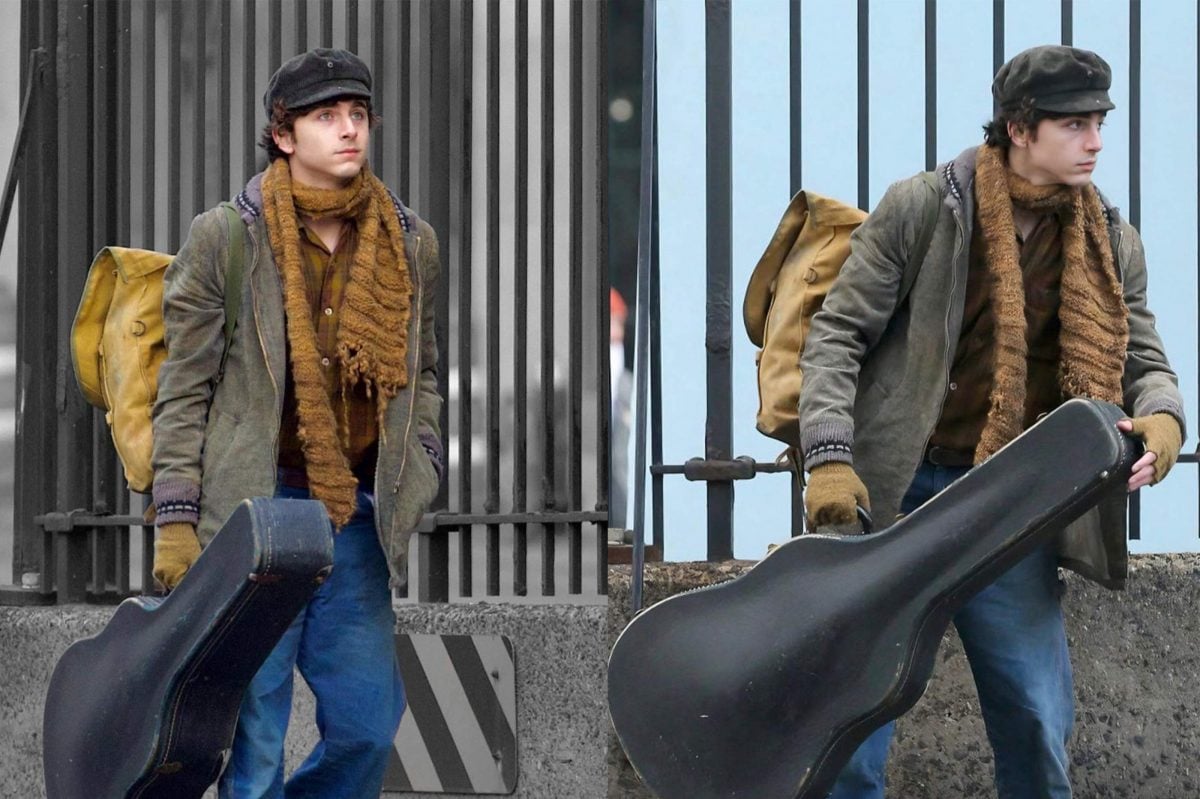
Since making Past Lives, Greta Lee sees In-yun everywhere. "I want it to stop," the Korean-American actress jokes. The film, distributed by A24 and the directorial debut of playwright Celine Song, is surprisingly existential, although given its name, you'd think audiences should be somewhat prepared.
Drawn from texture of Celine Song's own experience, Past Lives meditates on the roads not taken and all the potential realities that exist, if not in this world, then another. This makes it sound akin to the brain-splitting work of Christopher Nolan, but that couldn't be further from the truth. In-yun, a Korean concept that's nearest English translation is fate, grounds the romantic drama by offering hope and purpose. In-yun serves as an anchor, preventing its characters from floating away into the ether of what ifs and what could have beens.
"It felt more like a distant concept to me – even though I'm Korean, In-yun just felt like something my grandparents would talk about," explains Lee. "But it is a much more common idea floated around Korean society. For example, you and I have In-yun because we're talking here on Zoom," the actress explains through her blank screen. "This ineffable quality of connectedness that anyone could have, it's a very neat idea. I feel like I have this renewed sense of connectedness with people."
When we speak in June, the film has already been dubbed the best of 2023 by some critics. This, of course, is quite a statement and a lot to live up to, Greta Lee confesses. "We tried to make a movie free from any expectation in a larger sense, because we had our sights sets on subverting certain expectations of genre, what people would consider to be a more conventional love story. So we're still in our little silo right now."
Past Lives is a gear change from anything Greta Lee has previously worked on. Coming from a background of comedy, Lee recalls Song pointing out how "a lot of people can tell a joke, but not a lot of people can tell a cosmic joke". It was only after production wrapped that Lee finally understood what the director meant.
"There is this quality of stillness, silence and restraint that comes with doing a rigorously authentic observation of human behaviour. I was surprised to find my own impulses – not just as a comedic actor, but as a modern woman – of how I would want to fill silence, especially in moments of discomfort."
"I mean falling in love is supremely embarrassing. It's so exposing," Lee says. "Nora is a different kind of a woman. She's the type of woman who's so steady in a way that I'm not. She's so absolutely certain about what she wants at all times, and yet that doesn't free her from being flawed or having conflicting emotions within her."
Central to the plot of Past Lives is a love triangle involving Lee's character Nora, Hae Sung and Arthur, played by Teo Yoo and John Magaro respectively. While watching the film, there's a temptation to argue who has the more compelling romance. Is it Nora's husband Arthur, a fellow writer, and the cultivated lifestyle they've built in New York City? Or Hae Sung, a childhood sweetheart who reappears despite the decades and seas that wedged them apart? The script is certainly conscious of this. "In the story I would be the evil White American husband standing in the way of destiny," says Arthur.
So is Lee. "I understand the impulse to be team Hae Sung or team Arthur, I feel that too as a viewer of the movie. But ultimately, and I know this is a cop out, I'm team Nora," Lee says. "That's what makes it so complicated and heartbreaking, I think, that it's not so simple as choosing one of them. Because each relationship is so legitimate. Each man represents a whole new world, a whole new portal where parts of her life and identity are reflected back at her. Both of them are true, it's just not possible in this current lifetime. Which is why I love the line 'see you then, see you in the next lifetime'. God, it drives me crazy."
In less dexterous hands, it's easy to imagine Past Lives falling into melodrama and cliche, with Celine Song at the helm the final scene's punch to the heart feels gratifying and earned. You come away not only with an unseen rendering of New York City, lucid and immediate, or its satisfying depiction of 2010s intimacy and yearning through a Skype screen, but with the rare sense of a job well done having watched adults negotiate delicate emotions with the precision of a bomb squad.
"I love that at the end of the day, this movie is just about decent people trying their absolute best to be decent," Lee says. "I found that so fascinating, and ultimately so tragic and heartbreaking. How do we confront and deal with notions of love and providence and destiny. There's an endless amount of stuff to mine from that."
But perhaps the greatest strength of Past Lives, aside from its emotional maturity, artful shots and tentative pace, is how it weaves in a tale of the diaspora with a lightness of touch. Past Lives grants Hae Sung and Nora the goodbye they were robbed of as children, it provides closure to a story of immigration so often defined by its absence. Because ultimately for Nora, Hae Sung is not just evidence of a childhood crush, but an evolving gateway into what her life could have looked like if her family never left Korea for Canada ("he makes me feel Korean, I think I just miss Seoul").
For all these reasons, Lee admits she cried the whole time while first reading the script. "I'm grateful that I got it out of my system, because I wasn't really allowed to cry while filming until the end of the movie." Let's see if you can muster up the same resolve.
Past Lives is screening at Melbourne International Film Festival in August. Tickets can be purchased at the festival website. Past Lives will be released in theatres across Australia on August 31.



